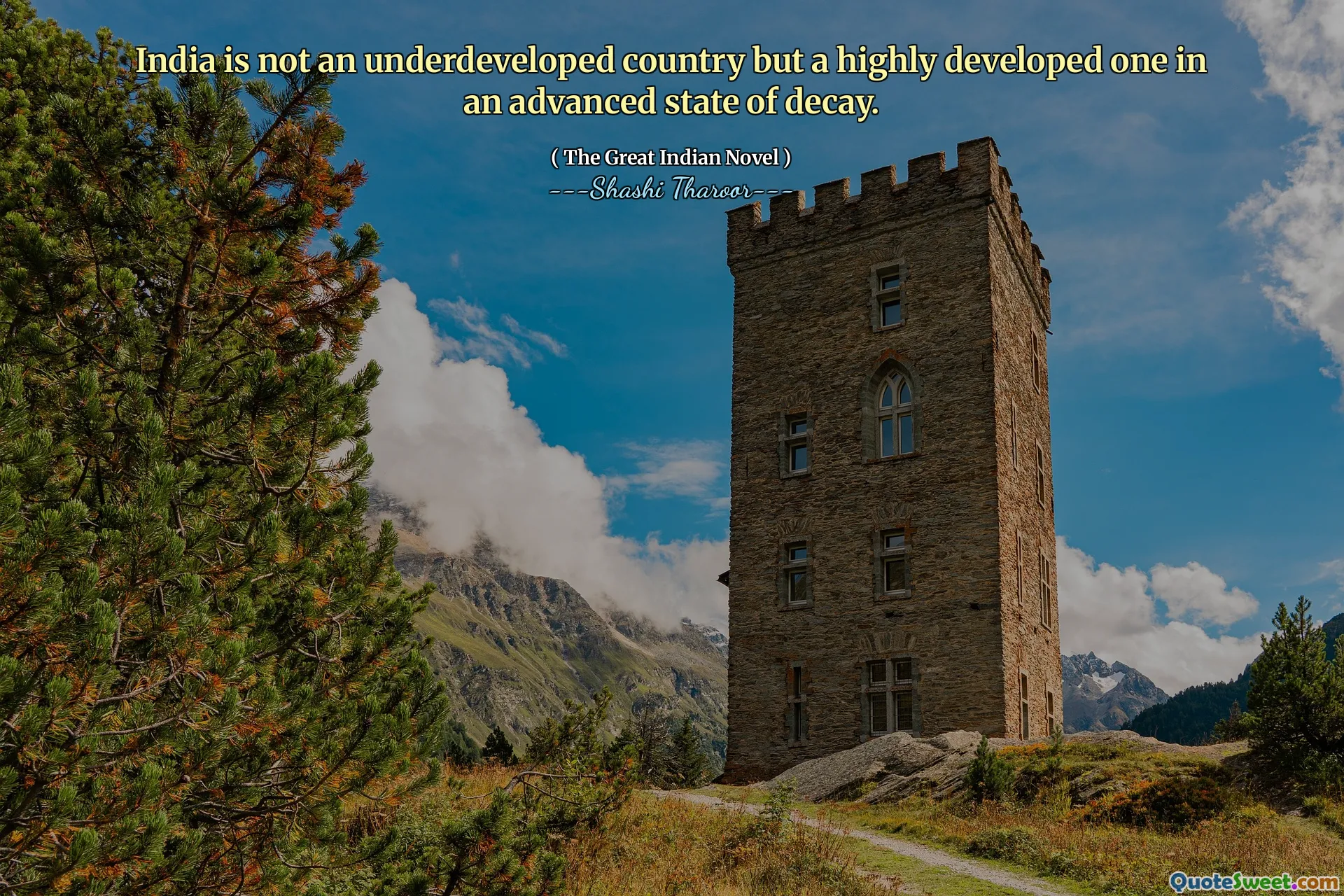
India is not an underdeveloped country but a highly developed one in an advanced state of decay.
The quote provocatively challenges common perceptions about developmental progress and the state of nations, particularly India. It suggests that India has achieved significant development—certainly enough to be classified as advanced—yet simultaneously faces internal decay that undermines its true potential. This perspective invites reflection on how superficial indicators like infrastructure or economic measures can obscure deeper systemic issues. In the context of India, this decay can manifest in various forms: corruption, bureaucratic inefficiency, social inequalities, or infrastructural degradation that lingers despite outward appearances of progress. Such contradictions are often found in nations experiencing rapid growth, where the surface gleams with modernity and affluence, but underlying problems persist or even worsen.
This observation prompts us to reconsider the true meaning of progress. Development should encompass not only economic expansion but also social justice, political integrity, and cultural vitality. When these elements falter, the entire fabric begins to fray, leading to a country that appears to be thriving but is fundamentally decaying internally. It raises important questions about sustainability and the long-term viability of development strategies that focus solely on growth metrics without addressing underlying social and institutional weaknesses. It echoes the idea that a nation's stability depends on more than just its wealth or technological advancements—it's about maintaining the health of its societal structures. Recognizing these contradictions allows policymakers, citizens, and leaders to prioritize holistic development, working towards repairing the decay while sustaining progress.
Overall, this quote serves as a powerful reminder that genuine progress should be holistic and inclusive, safeguarding against the allure of superficial success while neglecting the foundational health of the nation.






